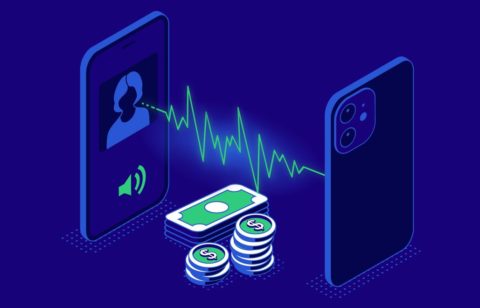Taking out a car loan is a common practice among consumers. After all, not many people have all that cash on hand to otherwise make such a costly purchase.
Whether you are buying a new or used car, getting an auto loan should be approached with caution. As the saying goes, a vehicle depreciates the minute you drive it off the lot. If you use a loan to pay for it, you will end up paying a higher amount in the end compared to the actual value of the car.
As you know, most loans come with interest charges. By the time you finish paying it off, the value of the car will have gone down significantly. Using cash is a failproof way to avoid interest, and many car dealers award cash buyers with a discount.
While the ideal scenario is not to take out a loan, the reality is that few people can afford it. According to NewYorkFed.org, auto loan balances stood at $1.55 trillion as of the fourth quarter of 2022—a $28 billion increase from the third quarter. This number also contributed to the upward trajectory of auto loan balances, which have been rising since 2011.
If you are unable to put away enough funds, you should find ways to save money on your car loan. For instance, shopping around for a decent interest rate before you step foot in the dealership could save you hundreds of dollars. You will also know exactly how much money you have to work with.
Tips to save on your auto loan payments
Before you apply for an auto loan, it is important to determine how you will pay it back. Simply looking at your income to see how the payments fit into your budget is not enough. You should also consider your other expenses and debts before you finalize the details of your loan.
It is recommended that you come up with a payment strategy before applying for the loan. That doesn’t mean simply having estimated numbers and figures in your head. Take the time to calculate exactly how much you can afford when you include interest.
Once you know the interest rate you qualify for, you can determine if there is a way to lower the amount you will pay in the long run by considering the following:
1. Round up your monthly payments
If your number is $475, round it up to $500. The obvious benefit here is paying off the loan faster. Beyond that, you will also save in terms of interest.
The longer the payment period, the higher amount of interest you will pay in the end since it accrues on a daily basis. On a positive note, lengthening the timeframe can lower your monthly payments. But the faster you lower the amount you owe, the less interest you will be responsible for.
2. Make additional lump sum payments
Any windfall income that comes your way should be put toward your loan. If you receive a bonus, tax refund, or a monetary gift, you may want to put it towards your debt instead of buying the latest phone. Again, your goal here is to pay the loan as fast as possible to save money on interest.
Make sure there is no prepayment penalty clause. It is rare to find this in an auto loan, but you should check the details just to confirm. If there is such a clause, you will be charged fees if you pay more than the monthly amount due. In some cases, the total you will save outweighs the penalty charge so do the math before you decide.
3. Opt for low-interest refinancing
Another way to save money on your car loan is by refinancing it to a lower rate. If you are paying 5% in interest and find a loan that offers 3%, it makes sense to switch. This can reduce your monthly payment and save you a lot on interest in the long run.
4. Pay more frequently
The last tip to save on your car loan is to make more frequent payments. If you only pay once a month, try paying on a bi-weekly basis. You can even pay on a weekly basis if your budget can handle it. This helps reduce the interest that will be paid for the life of the loan. In a bi-weekly payment scheme, you will end up making one extra monthly payment.
It is important to be well-informed about car loans, so you know your rights as a borrower. In 2015, the Consumer Financial Protection Bureau (CFPB) expanded to supervising larger nonbank auto finance companies to help protect borrowers from bad lending practices.
Before this rule, the only regulation came from banks and credit unions. Today, even nonbank auto loan companies are expected to follow suit.
Regulations include fair marketing and disclosure of car financial terms, providing accurate credit bureau reports, fair treatment during debt collection, and other fair lending practices.
People Also Read
Tips to lower your car-related expenses
The sooner you pay off your auto loan, the faster you can put your money to better use. Investing and saving are a few of the many options you might want to consider.
According to American Automobile Association (AAA), the annual cost of owning a car has hit $10,738—that’s $894 per month. In addition, Kelley Blue Book reports that the average price of a new car reached an all-time high of $48,182 in 2022—an 11.9% increase from the previous year. Therefore, it’s no surprise that auto sales have dropped and are at their lowest level since 2011 when sales were recovering from the Great Recession. Check out the four money-saving tips below.
1. Drive carefully
Did you know that you can save a lot on car expenses if you practice proper driving skills? Something as simple as the way you step on the gas can help you save on fuel. How you use your car also determines how expensive the maintenance will be.
2. Choose maintenance over repair
It is more costly to repair your car so make sure you are aware of the basic maintenance routine your vehicle needs. Do not put off servicing your car, you will probably pay a higher cost if something breaks down.
3. Insure the car
No matter how careful you are, you never know when you will come across a reckless driver or skid on black ice. It is vital to insure your car so that accidents don’t cripple your finances or leave you with high medical bills. Most states require all drivers to have some sort of insurance coverage.
4. Spend smartly on your car
Make sure you are in good financial standing before spending hundreds on cosmetic modifications. Avoid purchasing accessories from your dealer. Experts say that it is a better idea to buy after-market products. But if something will not enhance or improve the condition of your car, you may want to skip the upgrade altogether.







